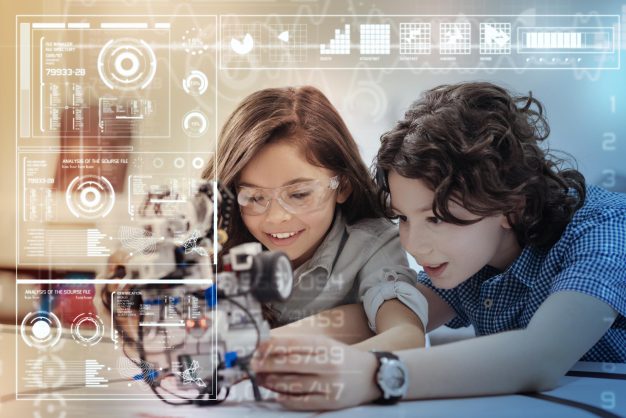
Children’s rights and inequality ‘firmly on the AI agenda’
The acceleration of Artificial Intelligence (AI) risks ignoring the basic rights of children ‘to their peril’, say leading UK academics and Parliamentarians.
That was one of the standout headlines of an event at Queen Mary University of London around safe and responsible AI, held in partnership with The Alan Turing Institute, the All-Party Parliamentary Group on AI, and Big Innovation Centre.
Baroness Beeban Kidron, a leading campaigner for children’s rights, said it was a ‘glaring omission’ that the needs of children were still not being placed at the centre of AI summits, but are instead continually pushed to the fringes of the debate.
The event, AI at a Turning Point: How Can We Create Equitable AI Governance Futures?, looked at various ethical issues that were not part of the Government’s recent two-day summit.
“The impact of AI on children is not somewhere in the future; it is here and now, whether it is the allocation of benefits, the assumptions in policing tools, or the scraping of children’s images to create abuse material,” said Baroness Kidron. “If AI is to develop for the ultimate benefit of humanity rather than profit only, then it must innovate in the best interests of children, with regulatory oversight and accountability.”
David Leslie, Professor of Ethics, Technology and Society at Queen Mary’s Digital Environment Research Institute, pointed to the ‘lack of attention the world has paid to the ethical implications of AI as the technology has rapidly advanced’, adding: “There hasn’t been enough attention paid to the ethical implications of AI systems that impact children and even less with regard to age-appropriate design. It’s like a ticking timebomb.”
Gabriela Ramos is Assistant Director-General for Social and Human Sciences at UNESCO, the United Nations Educational, Scientific and Cultural Organization dedicated to promoting world peace and security through international cooperation in education, arts, sciences and culture. Calling for a global approach to AI ethics, Ramos argued that while AI as has been approached as a technological debate, it was ‘ultimately a societal one’.
“What we say at UNESCO is that inequalities in the upstream contribute to the inequalities in the downstream,” she said. “And we’re just creating a world with high concentration of computer capacity, skills, infrastructure, energy, and of course, innovation, and then the rest of the world is not really looking into that.
Queen Mary University of London, the Alan Turing Institute, the All-Party Parliamentary Group on AI, and the Big Innovation Centre are all key players in shaping AI policy, and this event brought together speakers from six different continents to ensure that a wide range of voices and global perspectives are heard in what is undoubtedly a vital policy debate around the rights of everyone, not least children and young people.




